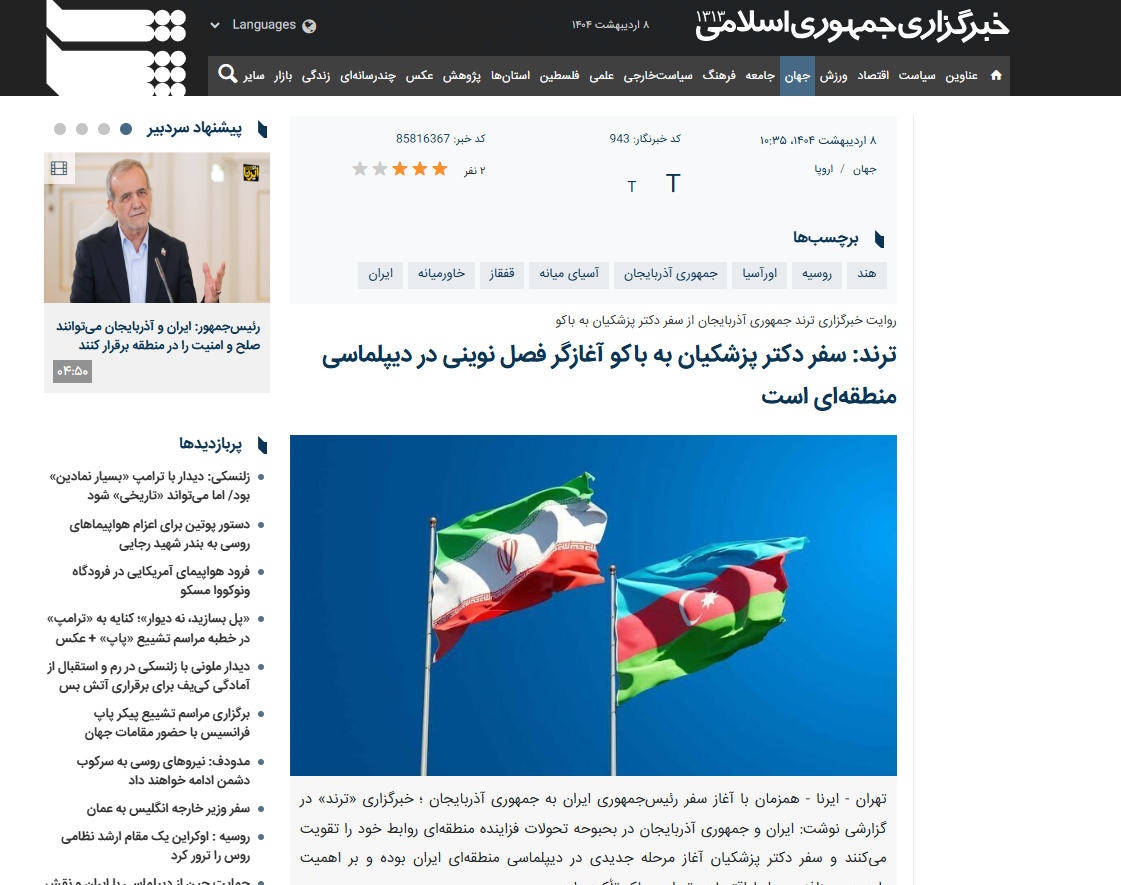BAKU, Azerbaijan, April 28. The Islamic Republic News Agency (IRNA) has published an article by Trend News Agency, focusing on President Masoud Pezeshkian's visit to Baku.
IRNA, founded in 1934, is Iran's oldest and one of its most influential media organizations. The agency provides news reports and analytical content on Iran and the Middle East in several languages.
"President Pezeshkian's visit to Azerbaijan marks the beginning of a new phase in Iran's regional diplomacy, underscoring the growing strategic importance of economic ties between Tehran and Baku," IRNA quotes from Trend's report.
The article also highlights that Iran is actively addressing trade barriers and is seeing a significant increase in cooperation with Azerbaijan.
"A key aspect of President Pezeshkian's visit is the participation of over 100 representatives from Iran's private sector, emphasizing Tehran's efforts to make the private sector the main driver of bilateral cooperation," the report states.
Energy cooperation remains a cornerstone of the strategic partnership between the two nations. In May 2024, Azerbaijan and Iran launched the Khudafarin and Giz Galasi hydropower plants on the Araz River. These projects will provide irrigation for more than 400,000 hectares of agricultural land in both countries and generate up to 280 megawatts of electricity, greatly enhancing energy security in the border regions.
"Improving transportation infrastructure is another key priority for both nations. Azerbaijan and Iran are actively collaborating on the International North-South Transport Corridor, which connects India, Iran, Azerbaijan, Russia, and Europe. Important projects such as the Rasht-Astara railway, set to be completed in 2025, and the construction of a bridge over the Astara River for both road and rail traffic, will significantly improve the efficiency of cargo transport," the article points out.
"Strengthening bilateral ties could lay the groundwork for a new regional economic order. Mutually beneficial cooperation and strategic initiatives will shape the future of the South Caucasus and the entire region," the article concludes.







